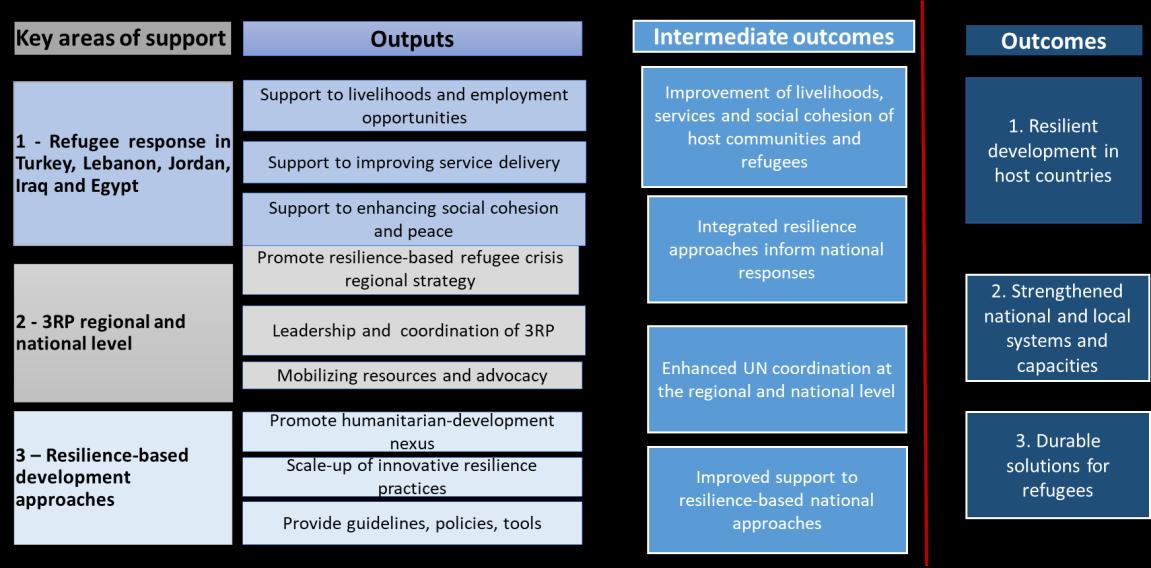CHAPTER 5. CONCLUSIONS, RECOMMENDATIONS AND MANAGEMENT RESPONSE This evaluation assessed the UNDP contribution to the Syrian refugee crisis response and promoting integrated resilience approaches for the period 2015 to 2019. Building on the key findings set out in the previous chapter, the conclusions presented here focus on strategic issues for the development and resilience dimensions of the UNDP role and contribution in refugee response. The conceptualization and programmatic support of UNDP to refugees and IDPs have evolved due to the protracted nature of these crises. This evaluation was conducted at a time when UNDP is defining its corporate refugee response strategy, fragility and conflict strategy and commencing the preparation of its new strategic plan for 2022-2026. Also, it coincides with the consolidation of the Crisis Bureau and its strategies. The recommendations take into consideration corporate policy formulation and the change processes now under way. The protracted nature of the refugee crises warrants a response that is distinct from the one during the initial stages of the crisis. With the Syrian refugee crisis entering its tenth year, the demand from the host countries for development support and enhancing resilience has only increased. The COVID-19 pandemic has impacted more than half of the world's population with significant development consequences which will only further increase the demand for balancing refugee and development support. An additional challenge of the pandemic is a possible decrease in development and humanitarian funding. The evaluation’s recommendations, therefore, underscore the importance of resilience-based approaches through institutional strengthening and durable solutions.
5.1. Conclusions Conclusion 1. The UNDP contribution to global debates and formulation of intergovernmental agreements to further the humanitarian-development nexus in refugee response has been significant. UNDP is well regarded for its multi-stakeholder engagement in a range of development and crisis areas. UNDP has a niche in the global humanitarian-development nexus policy space. UNDP has yet to assert its role in accelerating the humanitarian-development nexus at the global and country levels. Since the adoption of the SDGs, the international community has continued its efforts to advance the humanitarian-development nexus through global summits and intergovernmental agreements. The global consensus expressed in the endorsement of the Commitment to Action and the new way of working at the World Humanitarian Summit, followed by the New York Declaration for Refugees and Migrants and the CRRF, are significant steps in giving renewed thrust to bridging the humanitarian-development divide. The global engagement and contribution of UNDP in the intergovernmental events and discussions have been important in reinforcing the importance of development linkages in humanitarian response. The UNDP collaboration with the humanitarian agencies enabled efforts to reinforce the importance of development linkages in refugee response and enabling durable solutions. Through its resilience approach, UNDP
79



